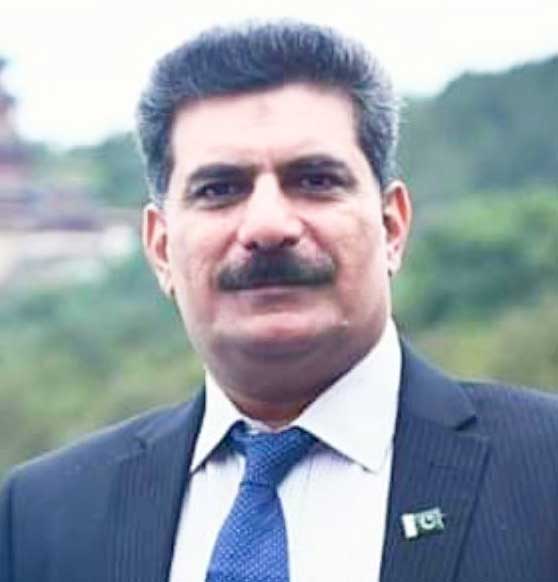Denouncing submission to desires
Desires make slaves out of kings, and patience makes kings out of slaves – Imam Al Ghazali
Every living creature on globe has some basic prerequisites for its existence. There are some basic entities like air, water, food etc. which a living being can’t do away with in order to survive on the surface of earth. Such requirements are sine qua nons for survival and viability of living beings. As long as such requirements are available, a living being exists; once these basic requirements are no longer getatable, a living being ceases to exist.
For its existence, every living creature has to struggle hard for his basic requirements as the surrounding conditions are not always favourable to him. Human beings, though noblest creation, aren’t exception to these principles. They too have some basic prerequisites for their existence. They can’t survive without their basic needs. Like other living creatures they too have to struggle hard for their survival. No human being can go against the laws of nature and remain static. Instead every single soul has to be assiduous to earn his livelihood and live comfortably.
He has to create new ways and new techniques to adopt himself with the changing environment. Unlike other creatures, human beings don’t restrict themselves to attainment of basic needs for their survival, rather their materialistic greed provokes their unending inner desires with no satisfying results.They always remain busy in fulfilling their inner desires which has been an unending process since the dawn of human civilization.
Naturally, every human being has countless desires – desires of wealth, happiness, success, richness, power, fame and many more to count. When channeled appropriately these desires help the human beings to achieve a higher status in life, but uncontrolled desires for more and more materialistic gains lead us to astray. When our power of desires surpasses our power of intellect and imagination we fall from the state of ‘noblest creation’ to the lowest level of creaturehood. As Almighty has mentioned in Quran: “And who is more astray than one who follows his desires without guidance from Allah? Indeed Allah doesn’t guide the wrong doing people.” (Al-Quran 28:50)
It can’t be denied that these desires start right from the childhood and continue till the last breath of a person. But these desires change at every stage of life on account of alluring illusion of worldly affairs and changing states of human mind. The materialistic greed of world has no terminating point and resultantly it accelerates the human desires with every passing day. As narrated by Anas bin Malik that the Messenger of Allah (SAAW) said: ‘If the son of Adam had a valley of gold, then he would still like to have a second. And nothing fills his mouth but dust, Allah turns to whoever repents’ (Jamiat-Tirmidhi, Book 36, Hadith 34). It is the natural tendency of almost all human beings that after fulfilling one desire they aspire for the next and the process goes on till their last breath. Uncontrolled and unrestricted avarice to fulfill their all desires ultimately turns human beings slave of their own desires. They remain suppressed under the burden of their own desires throughout their life but distressingly the more they fulfill their desires, the more are there to accomplish.
These uncontrolled and unfulfilled desires create chaos, confusion, perturbation and uneasiness and may compel a person to adopt wrong ways and means for their accomplishment thereby leading him to disobey Almighty.But to his utter dismay he never succeeds in fulfilling all his desires till he expires. We chase behind our desires in search of happiness and pleasure but eventually we realise we are chasing for an illusory mirage. Mirza Ghalib has beautifully verbalised this unending course in his famous couplet:
Hazaaron khwahishen aisi ke har khwahish pe dam nikle,
Bohat nikle mere armaan, lekin phir bhi kam nikle.
(Thousands of desires, each worth dying for…
Many of them I have realized… yet I yearn for more…)
The basic reason for our limitless desires is that we have forgotten the spiritual essence of our lives and our hearts are filled with materialistic greed. Instead of being contented and satisfied with what we have been bestowed with, we chase for more and more materialistic gains which results in unhappiness, disturbance and dissatisfaction as it is impossible to fulfill our all desires.
We continuously run after our desires throughout our lives and in this struggle we forget the main objective of our creation. We forget the very fact that this worldly life is temporary and we have to leave this world one day. We forget our hereafter life in the opalescent illusion of worldly beauties. We forget the Quranic verse in which Almighty says that every soul will taste death and worldly life is nothing but enjoyment of delusion (Al Quran 3:185).
Therefore for a peaceful and happy life, we should limit our desires and enjoy and appreciate what we have.To chase everything we want would be a never ending and futile process which disturbs the peace of our mind. We should seek a way of living that is ethically sound. We need to prioritize our basic needs and limit our endless wants and desires. We should have a positive attitude towards our life and express our gratitude for what we have. Sometimes we should forgo something and observe patience for something better over time as Almighty is the best planner.
We should be generous in our life as generosity de-escalates our selfishness and creates a sense of sharing in us which ultimately leads to peace and happiness. We should value social relationships and give more emphasis to serve society rather than getting more inclined towards our personal interests.
We can explore our creative potentialities to generate happiness in non-material, aesthetic and spiritual ways instead of searching for joy and happiness in materialistic benefits. By adopting these approaches we can delimit our desires and live a happy, prosperous and peaceful life.
Enjoy the little things, for one day you may look back and realize they were the big things. – Robert Brault





